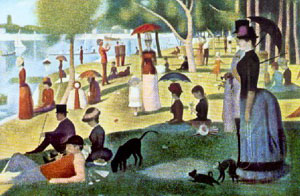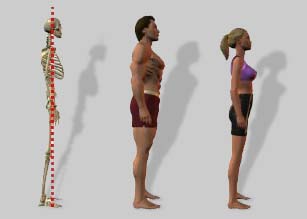Grace is probably my favorite word, idea, whatever. I like it because it implies both spiritual and physical aspects of living.
Grace is a flow of peaceful presence, a trust in the depth and breadth of possibility, no matter how frail we feel.
There is a deeper, graceful sense of being alive which often bypasses me, in fact if often avoids me, or I it. It’s the sense of being in the body throughout the day. Those of us who are ultra sensitive or self-conscious can become paralyzed with thought and analysis and we lose the flow of grace.
 When I think of graceful people the image I have is of Victorian women. Though corseted and bustled and weighed down with clothing, they are trained to float their heads effortlessly over their bodies, and to flow their bodies around as if on wheels. Try walking around with a book balanced on your head.
When I think of graceful people the image I have is of Victorian women. Though corseted and bustled and weighed down with clothing, they are trained to float their heads effortlessly over their bodies, and to flow their bodies around as if on wheels. Try walking around with a book balanced on your head.
Posture is another important aspect of physical grace. But posture is not about sitting up straight, it’s about balance, finding your center. Check out this nifty little guide to posture based on Aikido.
 Through the Alexander Technique, I’ve learned to float my head better over my spine, and to flow with my body. But I struggle with old habits of misuse and self-consciousness. Thinking about doing it right doesn’t work. Learning the body’s language is tricky.
Through the Alexander Technique, I’ve learned to float my head better over my spine, and to flow with my body. But I struggle with old habits of misuse and self-consciousness. Thinking about doing it right doesn’t work. Learning the body’s language is tricky.
What I often forget is the flow of fearless openness, just being inside my body and gracefully flowing into deeper, more life affirming habits, letting the body flow without being affected by judgment or thoughts. Flowing forward is not very easy for me. I tend to wander deeply into the jungle of thoughts and analysis, underneath an idea, drilling for oil. These explorations have their value to me as an artist, but not if they imprison me physically, inhibiting growth and learning from the body.
 To accentuate the problem I also fear being lost. (one great line from Frank Herbert’s Dune is: “Fear is the mind-killer”) I feel lost fairly often, wandering without direction, just ruminating aimlessly. I didn’t used to. Or at least I wasn’t self-conscious about it. Once one is self-conscious, either about the body or the mind or their uses, it’s hard to let go and get back into the flow.
To accentuate the problem I also fear being lost. (one great line from Frank Herbert’s Dune is: “Fear is the mind-killer”) I feel lost fairly often, wandering without direction, just ruminating aimlessly. I didn’t used to. Or at least I wasn’t self-conscious about it. Once one is self-conscious, either about the body or the mind or their uses, it’s hard to let go and get back into the flow.
And the symptoms of these misuses are catching up with me. I experience quite a bit of pain these days. I have pain in my knees, my shoulders, my gut, and especially behind my left shoulder blade. I’ve been working to get to the root of this pain, retraining my uses. And I’ve achieved some success. But the nagging pain has returned after a frantic day of gardening where I guess I mis-used my neck and shoulders yet again.
This retraining takes time. I’m slowly learning to be aware of each motion of body use without self-consciousness. That’s where another sort of grace comes in handy: knowing that I can only do my best, that I need to allow my humanness and its frailty, to be gentle with myself and with others.
So with trust and patience, I’m learning the mind and body flow which allows confidence and grace to grow.
Let my body and spirit flow gently forward in a timeless river toward grace.

